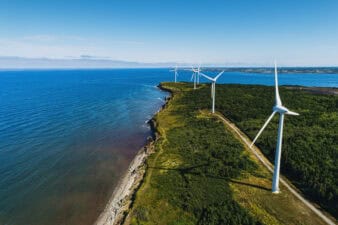Investing in a sustainable future will also help sustain your investments. All developed countries have pledged to reduce their carbon footprint by 2030 and 2050. But short-term macroeconomic conditions are stalling us from the objective of a green economy. This weakness has created an opportunity to invest in a sustainable future for the long term. While renewable energy companies had a tough time producing long-term growth for their shareholders, clean energy companies showed growth. Within 13 years, Tesla (NASDAQ:TSLA) stock surged significantly, making its initial investors millionaires.
Tesla: A preferred sustainable investing stock
If you had invested US$10,000 in Tesla’s July 2010 initial public offering, you would have US$2.1 million today. But not every clean energy tech can deliver Tesla-like returns.
Tesla’s initial growth was driven by its 2012 Model S. The major challenge for the electric vehicle (EV) maker was production. Because no one had produced EVs before, every step was learning. Tesla’s manufacturing cost was higher than the selling price. As Tesla progressed in the EV space, it invested in solar farms and stationary energy storage to charge EVs. It built EV charging infrastructure.
Tesla built its hardware and software, and invested in lithium mines to secure the mineral for lithium-ion batteries. It built the entire supply chain piece by piece, giving the company complete control of EV manufacturing. Today, the company is focussing on improving operating efficiency and reducing the manufacturing cost, weight of the vehicle, and power consumption. Sounds familiar. These are the three motivations for semiconductor manufacturing and the foundation of Moore’s law. Every new generation should be power-efficient and cost-efficient.
Tesla is building a next-gen vehicle with all three attributes. The journey of Tesla shows what it takes to create a clean energy revolution. It took Tesla 12 years to build the first million vehicles but only 7 months to scale it to 4 million vehicles.
Tesla is profitable across all segments, from EV manufacturing to services to energy, even after reducing the price of Tesla cars in a high-inflation environment. While the stock trades near its all-time high, it has more growth potential as it introduces new vehicles, scales production, and opens its EV supercharging network to other companies.
A Canadian clean energy stock for a sustainable future
Similar to how Tesla redefined transportation and solved the most pressing issue of growing carbon emissions from vehicles, Ballard Power Systems (TSX:BLDP) is looking to resolve the issues EVs face. While EVs do reduce CO2, the production and recycling of lithium-ion batteries and renewable electricity generation poses a big challenge.
Addressing these issues is hydrogen fuel cell technology that doesn’t need charging stations. Remember the three elements we talked about – weight, energy usage, and cost? Hydrogen has a high energy density that can even power large transports like ships, trucks, and industrial vehicles. Compressed hydrogen takes little space and is way lighter than lithium battery cells.
For lithium-ion batteries, you need to have a charging and energy infrastructure. But with hydrogen fuel cells, you can manufacture them in an energy-abundant place and transport them to areas that lack energy. Hydrogen fuel cells can solve the biggest challenge of energy security.
Like Tesla, Ballard Power Systems is facing manufacturing difficulties as the cost is high. It is receiving orders from industries and governments for hydrogen buses, stationary power, and other commercial vehicles. Like EVs, the market is optimistic about the potential of green hydrogen in addressing the two most pressing concerns of energy security and zero carbon emissions.
A power duo of sustainable investing
You can invest in both Tesla and Ballard Power Systems for the long term through your Tax-Free Savings Account (TFSA). The two companies have the potential to make transportation sustainable and monetize their solutions. These clean energy technologies are sustainable for the environment and your portfolio. They are likely to benefit from future policy-level changes to address the pressing issue of the negative impact of climate change on the economy.







